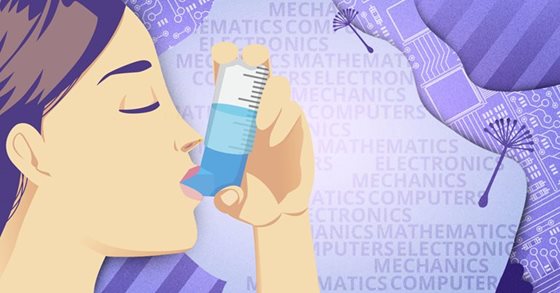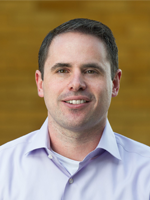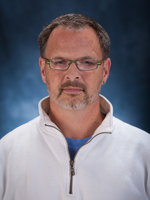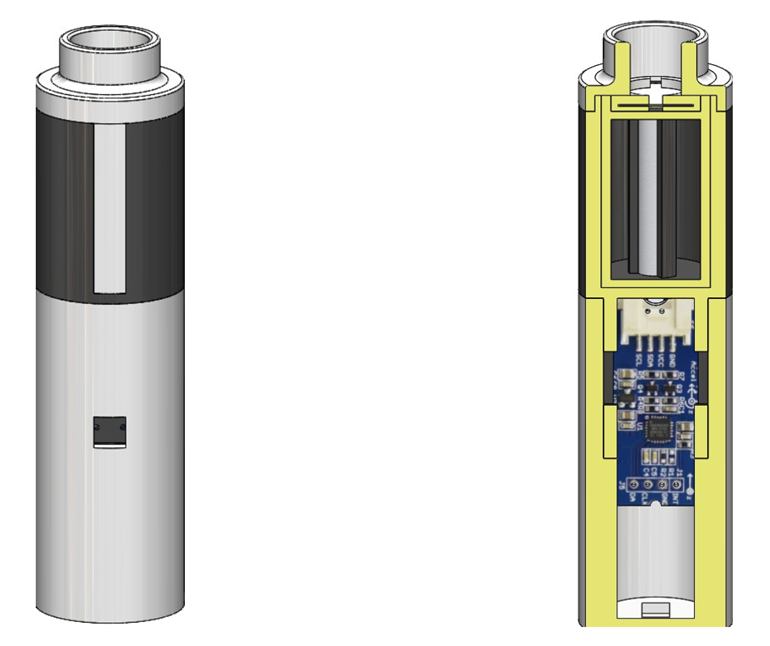
Dr. Pierre Mourad and Dr. Pietro Paparella with the University of Washington Bothell School of STEM were awarded first place in the NW Innovation Resource Center’s Amazon Catalyst Competition in the city of Everett.
The purpose of the competition was “to discover and reward big ideas to residents in the city of Everett with health care solutions for products, services and processes that focus on health care issues.”
A smart idea

In March 2020, Paparella, associate professor, approached Mourad with a forward-thinking idea that he believed could improve the lives of the approximately 25 million asthmatics currently living in the U.S. — a smart inhaler that monitors and tracks rescue inhaler usage on a smartphone.
As Paparella, a lifelong asthmatic, explains, all inhalers include a counter on the back that accurately tracks how many times an inhaler is used. But, for those with moderate-to-severe asthma who use albuterol rescue inhalers, it can still be difficult to tell how much medicine they have used in a given period of time — which is what doctors rely on to determine whether a patient’s treatment needs altering.
“Tracking albuterol usage is very important for asthmatics with moderate-to-severe asthma,” said Paparella. “When a flare-up occurs, patients will see their specialist and will be asked how much they’re relying on their rescue inhaler. Of course, this is all based on the patient’s memory.
“This is obviously far from ideal, and a smart inhaler would not only provide the doctor with accurate data, it would also correlate usage with environmental triggers such as air quality, pollen counts, temperature and humidity.”
Bringing technology up to speed

Paparella thought up this smart inhaler solution a few years ago, but only recently revisited it when he decided to submit to the 2020 Amazon Catalyst competition, with the help of Professor Mourad, who holds a joint professorship in the UW Department of Neurological Surgery in Seattle.
“I had previously thought about submitting to the competition but I didn’t know if it would be a good idea,” said Paparella. “But, I’m someone who has asthma, and over time I’ve noticed the technology has not really kept up with what’s currently available. It made sense to submit this time since the theme of the competition was health care.”
Paparella’s smart inhaler not only sets out to simplify asthmatics’ ability to monitor their asthma and inhaler use, but also enhances a doctor’s ability to administer care — by tracking the number of uses, the time of day it was used, and environmental conditions at the time of use, all within one smartphone application.
“The idea was to make this device more useful for people with asthma and other breathing disorders, and also provide doctors with a much clearer picture of what’s going on,” Paparella said.
Interdisciplinary collaboration
A few months after Mourad and Paparella submitted the idea, they were awarded first prize and $5,000 — money they quickly decided to reinvest in their students at UW Bothell. “Pierre and I donated the majority of it to the capstone program at UW Bothell with the intent of having the students develop a prototype for their capstone project,” said Paparella.
Several degree programs at UW Bothell require seniors to complete a five- to nine-month hands-on experience in which they solve a “meaningful challenge.” The professors figured developing this smart inhaler would be a great tool for experiential learning.

“We engaged two capstone teams, one involving electrical and computer engineering, and another involving mechanical engineering. Each team had four students,” said Mourad. “These two teams worked in parallel and helped each other to move the project forward beyond what we had originally conceived.”
David Chiang, one of the electrical engineering students in the capstone, said the experience gave him a chance to apply what he learned in the classroom to a real-world problem, helping him understand the responsibilities of an engineer in the workforce more fully. “I was always interested in working with medical devices so this capstone was a good learning experience for me and it also gave me an idea of how to think like an engineer instead of a student,” said Chiang.
Likewise, Manny Lyu, one of the capstone’s mechanical engineering students, said that the capstone helped him better understand what it’s like collaborating with different kinds of engineers on a project and has informed his resume for the post-graduation job hunt.
“This is my first time developing a bio-medication device,” said Lyu. “Most of our courses are mainly focusing on the moving mechanism or structural analysis, but activating the mechanism with the electrical system mechatronics integrates everything.
“This experience is definitely going to help me get a job not only in the bio field, but in the mechatronics field.”
Possibilities for the prototype
Paparella and Mourad are confident that their students’ future employers will be wowed by their work on this capstone, especially because there is a functional prototype they can point to and claim some ownership of. In fact, the students’ contributions may have helped Mourad and Paparella more than they originally anticipated — the professors now hope the work will catalyze them to build a medical device startup and eventually bring the smart inhaler to market.
“We have a little intellectual property we think we can develop. We have a prototype that uses novel technology to deliver the drug,” said Mourad. “It’s been really fun. They’re strong students. And we will continue with another group of students next year.
“Sometime over this next year I anticipate we’ll go for a larger set of funding once we have a sense of the intellectual property.”



